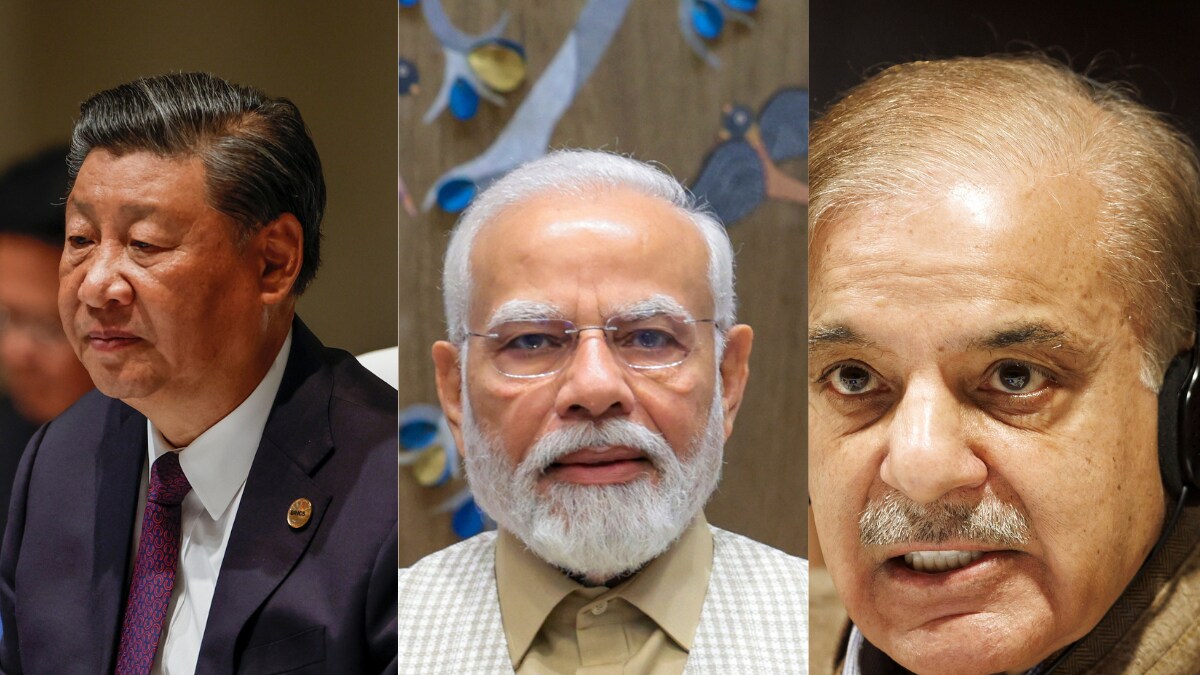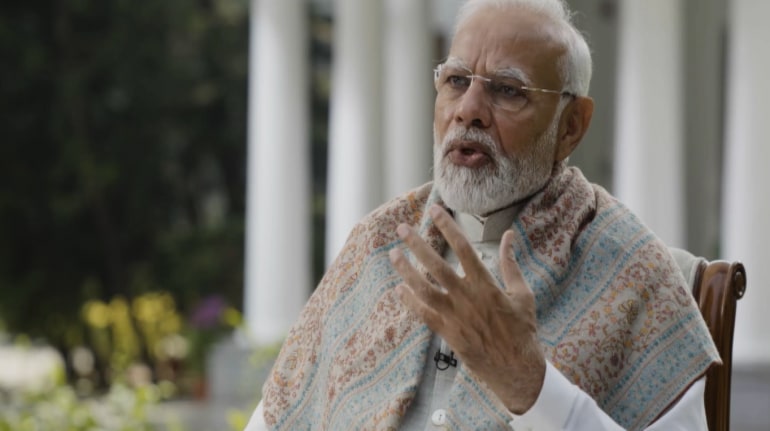PM Modi Defiantly Dismisses China and Pakistan’s Opposition to G20 Meetings in Arunachal and Jammu & Kashmir

PM Modi Defiantly Dismisses China and Pakistan’s Opposition to G20 Meetings in Arunachal and Jammu & Kashmir
In a bold and resolute move, Prime Minister Narendra Modi has unequivocally rejected objections raised by China and Pakistan regarding the hosting of G20 meetings in the scenic states of Arunachal Pradesh and Jammu & Kashmir. This decision, taken in the spirit of inclusivity and decentralization, sends a powerful message about India’s commitment to the democratic principles of openness and unity.
Prime Minister Modi, in an exclusive interview with PTI, firmly stated that it is entirely natural to host such significant international gatherings in various regions of the country. His unwavering stance not only underscores India’s sovereignty but also emphasizes the government’s determination to ensure equal representation and development across all states.
The decision to hold G20 meetings in Arunachal Pradesh and Jammu & Kashmir was met with opposition from China and Pakistan, both of which have historical territorial disputes with India in these regions. However, Prime Minister Modi’s response made it clear that India’s sovereignty extends to every corner of its territory, and no foreign objections can undermine this fundamental principle.

The G20, short for the Group of Twenty, is an international forum for governments and central bank governors from 19 countries and the European Union. It plays a vital role in addressing global economic challenges, promoting financial stability, and fostering sustainable development. India’s choice to host these meetings in Arunachal Pradesh and Jammu & Kashmir underscores the nation’s commitment to showcasing its rich cultural diversity, scenic beauty, and economic potential on the global stage.
One of the key aspects of Prime Minister Modi’s argument is rooted in the idea of inclusivity. He believes that every state and union territory of India should have the opportunity to host international events like the G20 meetings. This approach resonates with his vision of “Sabka Saath, Sabka Vikas,” which translates to “Together with All, Development for All.” By extending the G20 platform to these regions, the government aims to bridge the development gap and promote economic growth in areas that have often been overlooked.
Arunachal Pradesh, known as the “Land of the Dawn-Lit Mountains,” is not only renowned for its breathtaking landscapes but also for its rich cultural heritage. It is home to diverse indigenous communities, and hosting G20 meetings in this state will shine a spotlight on their traditions, art, and craftsmanship. The decision to hold meetings here aligns with Prime Minister Modi’s push for preserving and promoting India’s cultural heritage.
Similarly, Jammu & Kashmir, often described as “Paradise on Earth,” is a region of immense natural beauty. Its snow-capped mountains, serene lakes, and lush valleys have captivated travelers for generations. Hosting G20 meetings in this region will not only boost tourism but also showcase its economic potential, offering opportunities for local businesses and entrepreneurs.
Furthermore, Prime Minister Modi emphasized that the objections raised by China and Pakistan were unfounded, as these meetings are intended for peaceful diplomatic discussions among member countries. India has always been committed to peaceful coexistence and diplomacy, and hosting the G20 meetings in Arunachal Pradesh and Jammu & Kashmir is a testament to this commitment.
The Prime Minister’s decision to reject objections and move forward with hosting G20 meetings in these regions demonstrates his strong leadership and unwavering dedication to India’s interests. It reinforces India’s position on the global stage as a sovereign nation that values inclusivity and economic progress for all its citizens.

Furthermore, the choice to host G20 meetings in Arunachal Pradesh and Jammu & Kashmir aligns with India’s broader regional development agenda. These regions have historically faced unique challenges, including infrastructural gaps and limited access to opportunities. By bringing the world’s attention to these areas through international events like the G20 meetings, the government aims to attract investments, spur economic growth, and create employment opportunities. This move underscores Prime Minister Modi’s “Act East” policy, which seeks to enhance connectivity, trade, and cultural exchanges with India’s eastern neighbors.
The objections raised by China and Pakistan, while expected given the geopolitical complexities in the region, do not deter India’s resolve to host the G20 meetings in these states. The Prime Minister has consistently emphasized India’s commitment to resolving border disputes through peaceful dialogue and negotiations. This decision reflects the government’s unwavering stance on territorial integrity while also emphasizing its openness to international cooperation on matters of global significance.
Moreover, by choosing to hold G20 meetings in regions that have, at times, been in the spotlight for conflict and geopolitical tensions, India sends a clear message of reconciliation and inclusivity. It demonstrates the nation’s readiness to transform these regions into symbols of peace and prosperity. This approach aligns with the broader vision of “Aatmanirbhar Bharat” or “self-reliant India,” which aims to empower all states and regions to contribute to the nation’s economic growth.

In conclusion, Prime Minister Modi’s firm rejection of objections raised by China and Pakistan regarding the hosting of G20 meetings in Arunachal Pradesh and Jammu & Kashmir underscores India’s commitment to regional development, inclusivity, and diplomatic engagement. This decision reflects India’s sovereignty and resolve while sending a message of peace and progress to the international community. By choosing to showcase the beauty, culture, and economic potential of these regions, India aims to not only bridge development gaps but also create a lasting legacy of unity and cooperation on the global stage.




